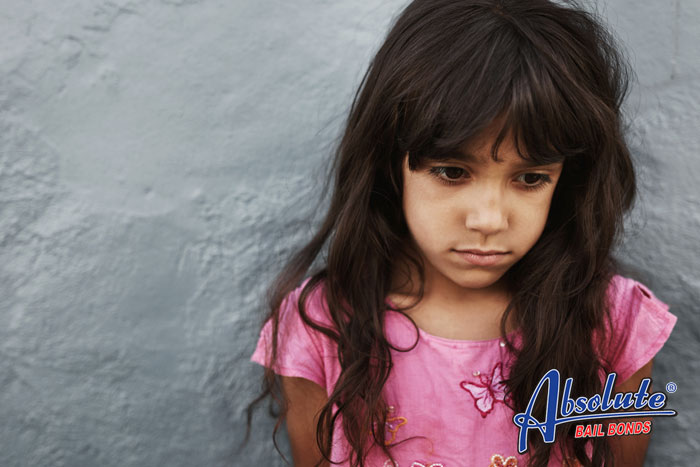
Absolute Bail Bonds Makes Bail Easy & Affordable
We Offer the Best Help with DUI, Drug, Warrant, Domestic Violence, Felony, Traffic, Weapons & Misdemeanor
Absolute Bail Bonds in Los Angeles is committed to serving you and securing your freedom. Our mission is to provide fast, friendly, confidential, and professional service to all of our clients. We believe in the right to bail and that a person is innocent until proven guilty. Because of this, we do not discriminate or judge and welcome anyone and everyone to reach out to us for assistance. Other bail bond companies may turn clients away or do a rush job on their case. But that is not the case for us. We see clients leave our services 100% satisfied with our work and they happily reunite with their loved one. That visual is why we are so honored and so dedicated to the work we do. As a family-owned company, nothing makes us happier than bringing families together.
We will gladly answer any and all questions you may have as there are many other aspects to posting bail beyond just the exchange of money. We regard your privacy and the information you share with us with the highest respect.
We Specialize in Fast, 24 hour availability! Call 1-800-793-2245 get them out within hours!

Crimes of Passion
There is something about the term “crime of passion” that causes many of us to think about romance and true love. The reality is that crimes of passion are not about showering a loved one with flowers and chocolate. Victims of crimes of passion will tell you that they are actually terrifying, life-altering acts that have more to do with fear than love.
What are Crimes of Passion
The legal definition of a crime of passion is, “a defendant’s excuse for committing a crime due to sudden anger or heartbreak, to eliminate the element of premeditation.”
A suspect is never charged with a crime of passion. That phrase is primarily used by the media and defense attorneys. In most cases, people who have committed “crimes of passion” are actually charged with murder, assault, or sexual assault.
Why so Many Use the Crime of Passion Defense
There are two reasons so many people use the crime of passion excuse. The first is to eliminate the idea that the crime was premeditated. If the prosecutor is convinced that the crime was premeditated and they feel they can prove it in court, the charges, and resulting penalties, will be far more severe than if you are found guilty of acting in the heat of the moment.
For example, for the prosecution to pursue a case of premeditated murder, the lawyer has to prove the suspect didn’t just think about murdering the victim, but actively planned out the details. Failing to prove this could cost the prosecutor the case.
Another reason defense attorneys like to use the phrase “crime of passion” while defending a suspect is because it’s a great way to convince the jury to put themselves in the accused shoes. The lawyer is basically asking each jury member to put themselves in the suspect’s shoes and imagine how they would feel if they were in the same situation. In some situations this can sway the jury, causing them to find the defendant not guilty.
It’s worth noting that California has an interesting take on crimes of passion that result in murder. In California, the defense not only has to prove that the murder was a crime of passion, but they also have to prove that the defendant was experiencing emotional turmoil at the time. The way the law is written makes it difficult for an attorney to use the crime of passion defense in cases that involve revenge.

What is Statutory Rape? Statutory Rape Laws and Charges
Teenagers are full of two things. Hormones and emotions. The combination causes them to make questionable life choices, which includes engaging in sex. When parents learn that their teenage child has become sexually active they often find themselves worrying if their child can be charged with statutory rape.
Recent changes to California’s laws about sex with minors have made the issue even more confusing than it is in some other states.
What is Statutory Rape?
Strictly speaking, statutory rape has nothing to do about sexual consent. In statutory rape cases, both parties are usually willing. These cases aren’t about the willingness of both partners but whether they’re able to cope with the emotional and physical ramifications that go hand in hand with a sexual relationship.
According to the law, statutory rape takes place when someone has sex with a minor, who is otherwise referred to as a person who hasn’t reached the age of consent.
Is it Possible for a Minor to be Charged with Statutory Rape?
The question of whether it’s possible for two minors to be accused of statutory rape doesn’t have a clear legal answer.
According to California Penal Code Section 261.5, statutory rape takes place whenever someone has sex with someone who hasn’t reached their eighteenth birthday. According to that, if a sixteen-year-old couple decides to have sex, both of them can be charged with statutory rape.
The problem is that for the charges to stick, the court has to determine which member of the couple is the victim and which is the aggressor, something that’s nearly impossible to do when both are minors. Due to the legal complexities of the situation, the charges are usually dropped and the court lets the parents decide how to handle the matter.
Penalties for Statutory Rape in California
Statutory rape charges in California are a serious matter. Statutory rape is one of the state’s many famous wobbler offenses. No two cases are handled the same way, which can make it difficult to guess what the final results will be. The most extreme cases can result in a sentence that includes 3 years in jail as well as a $10,000 fine.
Sometimes the court requires that the defendant register as a sex offender, but there are also situations where that hasn’t happened. It largely depends on the age of the two people involved in the case as well as the type of relationship they’re engaged in.
The best way to make sure you never have to unravel the complexities of statutory rape is by making sure your sexual partner is always over 18 years old.

The Long-Lasting Consequences of Drunk Driving in California
Like all other states, California has taken a hard stance on drunk driving. It isn’t tolerated. If you’re caught behind the wheel after having just a little too much to drink, you’ll face steep consequences that will have a major impact on the overall quality of your life.
California’s Legal Limit
California has different legal limits for different types of drivers. For the average, adult driver in California, anything over a blood alcohol count (BAC) of 0.08% is considered too high to legally drive. Drivers who haven’t reached their 21st birthday, anything over 0.05% is considered a DUI. Commercial drivers as well as drivers who are involved with a ride-share program aren’t allowed to get behind the wheel if their BAC is above 0.04%
If you are pulled over and the officer believes you’ve been drinking, they’ll likely administer a breath test that measures your BAC. If the BAC is considered close, but not quite at the legal limit, it’s likely you’ll still be arrested. The reason for this is because it can take a little time for the true BAC to be accurate. You’ll receive a second test at the jail. By this point, the BAC level will be accurate. If it’s above the legal limit, the officer will go through with the arrest. Both of the BAC tests are admissible in court. In many cases, the first test is a breath test and the second test is taken via a blood draw.
Penalties of Driving Drunk in California
California lawmakers aren’t playing around when it comes to drunk drivers. The penalties are steep and were designed to scare people into only getting behind the wheel while they’re sober. The penalties become more severe each time you’re charged with a DUI.
First Offense
The first time you’re caught driving while under the influence, the maximum amount of time you can spend in county jail is six months. You’ll also be charged fines that will range from $390-$1,000. Your license will be suspended and you won’t be able to drive for up to six months. Your ignition can be locked for 6 months to one full year, and you’ll only be allowed to drive on a restricted license during that time.
Second Offense
The second DUI charge means a minimum of 92 hours and a maximum of 1 full year in a county jail. The court can charge you fines that range from $390-$1,000. You can lose your license for a full two years, making it difficult to work, especially if you live in a rural area. After you get a restricted license, the court can limit your driving with an ignition lock that will remain on your vehicle for up to one year.
Third Offense
The third time you’re found guilty of DUI charges, you’ll be sentenced to as little as 120 days or as long as one year in jail. You’ll get charged at least $1,800 in fines. You’ll also lose your license for 3 years and potentially have an ignition lock installed on your vehicle for an additional 2 years.
California lawmakers have arranged things so that each DUI conviction remains on your record for a full 10 years.
In addition to actual DUI penalties, if you were in an accident while driving drunk, you will also face any charges that were incurred during the accident. This can include minor traffic offenses or vehicular manslaughter.
Medications Can Mess up Your Life
There are several medications that can play havoc on your body when you mix them with alcohol. The problem with many medications, even some over-the-counter allergy medications is that they alter the way your body absorbs alcohol. This means that if you go to the bar and have your normal amount of alcohol, and the amount that in most cases allows you to legally drive home, the medication could have created a significantly higher blood alcohol level and you’ll be arrested for DUI. Several people have had their lives destroyed because they didn’t realize how badly the medication and alcohol would react.
If you’re on medication, it’s in your best interest to not get behind the wheel if you have accidentally mixed the alcohol and the medication. Call a friend, get a room, hire a taxi. Do anything other than getting in your car.

The Reality of Prop. 25
The November third election is a big one for California voters. Not only do they have to decide which candidate they want in the Oval Office, they also must decide if they want to vote for or against, Proposal 25.
What is Proposal 25
The goal of Prop 25 is to end the current cash bail system. If it passes, California would be the first state to do away with this system. Instead of using a tried and true cash bail system, the state would create a system that would run a “risk-assessment” on suspects. Each suspect would be assigned a risk which would categorize them as:
- Low-risk
- Medium-risk
- High-risk
Low-risk suspects would be individuals that, based solely on a generic test, would be determined a low-risk for not appearing in court and who were deemed a minimal risk to society. They would be promptly released from jail.
On the other hand, someone who is considered high-risk might not show up for their court dates and they’re deemed a threat to society. These individuals would not be released. Eventually, high-risk individuals would get a few moments before a judge, at which point they’d be allowed to explain why the high-risk assessment is unfair.
Individuals who fall into the medium-risk category pose a problem. They might or might not appear in court. And they might, in the right circumstances, be a threat to society. It’s not entirely clear how the courts would be expected to deal with medium-risk individuals, other than some lawmakers stating that cases would depend on the local court’s rules.
Individuals who have been charged with misdemeanors would be exempt from the risk exceptions, though lawmakers are quick to point out that there will be exceptions.
The Problem with Prop 25
At first glance, Prop 25 doesn’t seem like a bad idea. It has the potential to provide individuals with limited income who have created minor offenses with the ability to get out of jail. That’s a good thing, right? Maybe not.
First, even low-income individuals do have the opportunity to be released from jail. If they don’t have the money needed to bail themselves out, they can contact local family-owned businesses like Absolute Bail Bonds where they can take advantage of flexible payment plans that include zero% interest, 20% discounts, and low-payments.
The biggest problem with Prop 25 is that it doesn’t appear that anyone has a good way to run the risk assessments. Fans of Prop 25 haven’t been able to provide much information about how the assessments will be run or how they’ll be evaluated.
The current system provides the court to look closely at each person’s criminal and community history. This information is used to determine how much money is needed to convince the person to stay out of trouble and attend all of their court appearances. The fact that bail can be revoked if the person does violate the terms of their release by engaging with certain people, leaving town, or committing a crime provides further incentive for everyone to walk the straight and narrow path while they wait for their case to reach its conclusion.
The biggest concern with Prop 25 is that while fans of the proposed law are convinced it will work, they’re unable to provide any detailed information about how the risk assessment will be conducted. When you read the bill, all it says is that the risk assessment will use “tools shall be demonstrated by scientific research to be accurate and reliable.”
That sounds a lot like the type of system internet dating sites use, and everyone who has used one of those sites knows that while love matches are possible, most of the connections are massive duds. Does anyone really want to have a bail system that has the same kind of success rate as the average internet dating service?

False Allegations of Child Abuse in California
Child abuse laws are designed to protect children from being hurt. They’re good laws that make a lot of sense. Unfortunately, they are also laws that can be used against people, particularly parents who are engaged in a child custody dispute. It’s not unheard of for one parent to accuse the other parent of child abuse in order to obtain full custody of the children. It’s an accusation that can deal a lasting blow to both sides.
While there have been instances of men lodging false child abuse claims against women, it’s far more common for a woman to falsely accuse a man of child abuse. Data collected by the Stop Abusive and Violent Environments (SAVE) indicates that 85% of all child abuse protective orders are filed by men and issued against men. One lawyer estimates that approximately 90% of those that are filed during a divorce and that mention child abuse are a tactical move to gain custody of the children.
California’s family court judges are legally obligated to take all child abuse accusations seriously. The last thing anyone wants is for a child to be hurt because the court failed to act. As soon as one parent accuses the other of child abuse, the court will take action, usually siding with the parent who made the accusation. If you are the one accused of abusing children, you shouldn’t assume that you’re promptly out of luck. You do have to be willing to take a defensive stance.
It’s in your best interest to demand that the court investigate the accusations. Be prepared for this to involve an in-depth and invasive investigation into your background. Court-appointed experts will interview several people which can include:
- Your children
- Family
- Friendly
- Doctors
- Teachers
The process is time-consuming and often frustrating. When you feel impatient, remind yourself that you’re doing this for the good of your child.
The topic of false child abuse accusations in California is addressed in Family Code section 3027. According to the code, once it’s proven that the allegations filed against you were knowingly false, you have the right to seek monetary compensation for your court fees and additional costs that were connected to proving your innocence. The result of the investigation could lead to a significant change in which parent is granted custody of the children.

Falling Asleep Behind the Wheel in California
We’ve all done it. Gotten behind the wheel and driven when we were tired. Most of the time rolling down the window, cranking up the radio, and indulging in a massive amount of caffeine is enough to get us safely where we need to be. The problem is that some people don’t make it to their destination. Some people fall asleep while they’re behind the wheel and find themselves in serious legal trouble.
The Dangers of Falling Asleep While Driving
People constantly warn us about driving while intoxicated. We know it’s dangerous and know that it’s a serious traffic offense. People rarely discuss the fact that driving while fatigued is equally dangerous. In most cases driving is monotonous. It’s so easy to let your eyes close for a second. That’s all it takes for us to fall asleep and get into a bad accident.
If you’ve ever driven while drowsy you’re not alone. The National Highway Traffic Safety Administration (NHTSA) reports that approximately 100,000 police-reported car accidents involved drowsy driving. It’s estimated that 72,000 of those accidents led to severe injuries and that 1,600 involved fatalities.
How California Handles Drowsy Driving Cases
Each time you get behind the wheel of your car, you’re entering into an unspoken, but legally binding contract with everyone that you’re fit for driving. Getting behind the wheel means that you plan on following all posted traffic laws, that you’ll stay alert, and that you’ll drive defensively. This means you won’t be distracted, you’re not intoxicated, and you’re not fatigued.
Failing to keep up your end of the agreement results in traffic tickets and possibly jail time.
If you’re caught driving while drowsy in California, at best, you’ll get a ticket for reckless driving. According to the state, you’re driving recklessly any time you, “drive any vehicle in a manner that exhibits willful or wanton disregard for the well-being of others on the roadway.” The state considers falling asleep and an example of willful or wanton disregard.
If you’re caught driving while drowsy, the best you can hope for is a traffic ticket that will cost you $145. That’s the best-case scenario. If you caused an accident, injured someone, created an intensely dangerous situation, or did a great deal of damage to someone else’s property, the consequences will be much more severe. The state has the option of sentencing you to 90 days in jail and charging you with a $1,000 fine.
Depending on your driving record, the driving while drowsy episode could result in you losing your license. If you injured or killed someone, you could face both manslaughter charges and a civil lawsuit.
The next time you think about driving while exhausted, you should reconsider and take a nap instead.

Are You Impacted by California’s Mandatory Reporting Law?
You just watched your neighbor commit a crime. You know what they did was illegal, but you aren’t sure what you should do about the situation. You don’t want to get anyone in trouble. On the other hand, you know you don’t like the idea of living next to someone who blatantly breaks the law.
Assuming that your neighbor didn’t do break a minor law, like jaywalking, it’s in your best legal interest to report the crime to the authorities. The reason for this is simple. If your neighbor gets caught and the police find out that you’ve been turning a blind eye to the situation, you could land in hot water. This is especially true if your neighbor is abusing a roommate/parent/friend, or if they are involved in a child endangerment/neglect situation.
Some people don’t realize that their chosen profession requires that they report any criminal activity that they have knowledge of. California created Mandatory Reporting laws that require specific professions to report criminal activity. Professionals who are bound to adhere to the Mandatory Reporting Laws include:
- School officials
- Anyone who works in law enforcement
- Social workers
- Members of the clergy
- Firefighters
- Therapists
If you are a member of any of these professions, you’re legally required to report instances of:
- Extreme verbal abuse
- Physical abuse/assault
- Sexual abuse
- Child neglect
- Child endangerment
Failing to obey the Mandatory Reporting Laws means could come at a steep price. If you’re found guilty, you could be sentenced to spending 6 months in a county jail and be charged a $1000 fine.
What if You Discourage Someone From Reporting a Crime
If someone you know has knowledge of an abuse or child endangerment crime, and you convince them to stay quiet, the law can come after you. If found guilty of willfully preventing someone from stepping up and reporting a crime to the proper authorities, you’re looking at a year in jail and a $5000 fine.
Mandatory Reporting Laws Require that You Think Before you Confide in Someone
If you have broken a law or think you know someone who has, you need to be aware that if you discuss the situation with someone who’s profession forces them to report the alleged crime, they will likely have to mention your name. The police will likely be very curious about why you failed to report the abuse right away. It will look better and not put your friends in an awkward position if you report the situation yourself.

If You Need Bail Help, You’ve Come to the Right Place
Were you recently surprised by the arrest of a close friend or family member? Are you trying to rescue him or her from jail? If so, you’ve come to the right place. For over 30 years, Absolute Bail Bonds has helped thousands of Californians bail their friends and family members out of jail. Let us help you too.
Here at Absolute Bail Bonds, we know how intimidating and confusing the bail process can be for the first time. This is why our bail agents do everything that they can to help guide you through this. Whenever you need help, whether it is one in the afternoon or four in the morning, you can count on our bail agents to be there for you.
Once you start talking with one of our bail agents, they begin working with you. Just tell our agents your loved one’s name, birthday, and county of arrest. With that information in hand, our bail agents will be able to locate your loved one in the county jail system and begin filling out the paperwork for the bail bond.
Our bail bonds only cost 10% of the bail they are for, and we provide each of our clients with personalized payment plans. These payments plans further reduce the upfront cost of the bail bond, and come with 0% interest. This means that you only have to pay for the bail bond itself, and don’t have to worry about paying extra just to make the bond more affordable.
Some of the other benefits that we provide include:
- 24/7 Bail bond service
- 20% Discount
- Phone approvals
- No hidden fees
- No collateral with working signer
- Se habla Español
If you were recently caught off guard by the arrest of a loved one, don’t panic, Absolute Bail Bonds is here to help. We have been helping Californians face bail since 1987 and we can help you to. You will always have a bail agent to talk to and answer your questions. On top of that, you will be provided with a bail bond and payment plan that you can afford.
There is no reason to wait any longer. Call 1-800-793-2245 or click Chat With Us now!

What Happens During the Booking Process?
There is a lot about getting arrested that most people don’t know. After all, most people don’t ever plan on getting arrested so why bother learning about something that will never happen. Unfortunately, an arrest isn’t something that can be planned, it just happens. Thousands of people get arrested every single day. Even if you don’t get arrested, one of your loved ones could be.
When a person is arrested, they aren’t sent straight to jail. First, they have to go through the booking process. During this time, information on the person is recorded and put into the system. This way the person can be identified in jail and the future if they ever get into trouble again.
The steps of the booking process are as follows:
- Recording a person’s name and other information.
- Taking a mugshot.
- Confiscating the person’s personal belongings.
- Taking fingerprints.
- Conducting a full-body search.
- Checking for warrants.
- Health screening.
- Checking for any affiliations.
- Taking a DNA sample.
When all of that information has been recorded, the person will be completely booked into the system. Once that happens, the person can be bailed out of jail, provided they have been granted bail. If you are ready to bail your loved one out of jail, then you should contact Absolute Bail Bonds in Los Angeles. We are always there for our clients, no matter what time it may be.
We provide all of the following for our clients:
- 24/7 Bail bond service
- 20% Discount
- Phone approvals
- 0% Interest payment plans
- No hidden fees
- No collateral with working signer
- Se habla Español
A person has to be completely booked into the system before they can be bailed out. Once a person has been booked into the system, you can bet that Absolute Bail Bonds in Los Angeles will be there for you. Our bail agent will be ready to go and will help get your loved one out of jail in no time.

